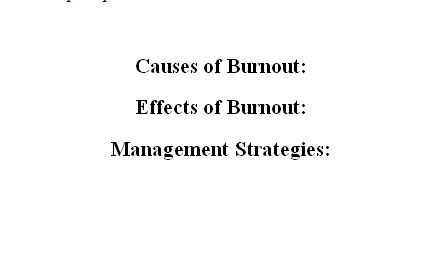BURNOUT IN SPORTS PERSONNELS: CAUSES, EFFECTS, AND PREVENTION STRATEGIES
DOI:
https://doi.org/10.55968/ijobsms.v12i01.425Keywords:
Bournout and Sports PersonnelAbstract
Burnout is a common problem among sports personnel, including athletes, coaches, and other support staff. This research paper aims to explore the causes, effects, and prevention strategies of burnout in sports personnel. The paper reviews various studies conducted in this area, including cross-sectional, longitudinal, and experimental designs. The results suggest that burnout is a complex phenomenon that can be caused by various individual and environmental factors. It can have negative consequences on the mental and physical health of sports personnel, as well as their performance and job satisfaction. However, various prevention strategies, such as training interventions, social support, and mindfulness practices, can reduce the risk of burnout and improve the well-being of sports personnel.
Metrics
References
Ahola, K., Hakanen, J. (2007). Job strain, burnout, and depressive symptoms: a prospective study among dentists. Journal of Affective Disorder. 103-10.
Buceta, J.M., Guerrero, M., González-Ponce, I. (2016). Burnout in high-performance coaches. International Journal of Sport Science. 89-98.
Halvari, A.E., Halvari, H. (2019). Predictors of burnout among elite soccer coaches. Scandinavian Journal of Medicine & Science in Sports. 384-94.
Ivarsson, A., Johnson, U., Andersen, M.B., Tranaeus, U., Stenling, A., Lindwall, M. (2017). Psychosocial factors and sport injuries: meta-analyses for prediction and prevention. Sports Medicine. 353-65.
Singh, M., Kour, R., & Kour, A.,. A collaborative diversified investigation of respective responses of sports person coaches and organizations on criminalization of doping.International Journal of Health Sciences,6(S3), 11295–11310. https://doi.org/10.53730/ijhs.v6nS3.8641
Mandeep Singh., Assessment of Vocational Interests of Pahadi&Bakarwal School Students In Relation To Their Gender. Int J Recent Sci Res. 9(3), pp. 24817-24819. DOI: http://dx.doi.org/10.24327/ijrsr.2018.0903.1731
Kallus, K.W., Kellmann, M. (2014). Burnout in athletes and coaches. In Routledge Companion to Sport and Exercise Psychology. 475-486. Routledge.
Maslach, C., Schaufeli, W.B., Leiter, M.P. (2001). Job burnout. Annual Review of Psychology. 397-422.
Smith, R.E., Smoll, F.L., Cumming, S.P. (2016). Coaching psychology and athlete burnout: implications for coaches and athletes. Coaching Psychology International. 34-44.
Singh Nathial, D. M. (2012). ANALYZING THE CREDIT BASED SYSTEM IN PHYSICAL EDUCATION. International Journal of Behavioral Social and Movement Sciences, 1(3), 172–176. Retrieved from https://ijobsms.org/index.php/ijobsms/article/view/37
SHARMA, N. P., & SINGH, M. (2014). SENIOR AGE GROUP RELATIVE EXERCISES AND IMPACT ON THEIR LIFESTYLE. International Journal of Behavioral Social and Movement Sciences, 3(04), 78–82. Retrieved from https://ijobsms.org/index.php/ijobsms/article/view/246
CHAND PURI, P., MISHRA, P., JHAJHARIA, B., & SINGH, M. (2014). COORDINATIVE ABILITIES OF VOLLEYBALL IN DIFFERENT AGE GROUPS: A COMPARATIVE STUDY. International Journal of Behavioral Social and Movement Sciences, 3(3), 56–68. Retrieved from https://ijobsms.org/index.php/ijobsms/article/view/228

Downloads
Published
How to Cite
Issue
Section
License
© 2025 International Journal of Behavioral Social and Movement Sciences. All Rights Reserved.
All content published in this journal, including articles, images, and other intellectual property, is protected by copyright law. No part of this publication may be reproduced, distributed, or transmitted in any form or by any means without the prior written permission of the publisher.
For permissions and inquiries, please contact us at: editor@theuniversityacademics.com
License Terms for Publications in International Journal of Behavioral Social and Movement Sciences
By submitting an article to the International Journal of Behavioral Social and Movement Sciences, authors agree to the following terms:
-
License Grant:
-
Authors retain copyright for their work. However, by submitting their work, authors grant the journal a non-exclusive, worldwide, royalty-free license to publish, reproduce, distribute, display, and otherwise use the article in any form and medium (print or digital) in perpetuity.
-
-
Open Access:
-
Articles published in this journal are made freely available to the public under the terms of an open-access license. The journal allows anyone to access, download, copy, distribute, print, search, or link to the full text of the articles.
-
-
Attribution:
-
Authors are required to provide proper citation and attribution to the original article when reusing or referencing content. The attribution should include the author(s), title of the article, journal name, volume, issue, and publication year.
-
-
Reuse of Material:
-
Authors may reuse their published work for non-commercial purposes, including reprinting in other publications or personal websites, provided proper attribution is given to the original publication.
-
-
Creative Commons License:
-
The journal may publish articles under a Creative Commons Attribution 4.0 International License (CC BY 4.0), which allows others to remix, adapt, and build upon the work, even for commercial purposes, as long as they give appropriate credit to the original author(s).
-
-
Peer Review:
-
The submitted article will undergo a thorough peer-review process, and the final decision regarding publication rests with the editorial board of the journal.
-
-
Withdrawal:
-
Once accepted for publication, articles may only be withdrawn with the approval of the editorial board and must not be published elsewhere in any form without prior written consent.
-
















